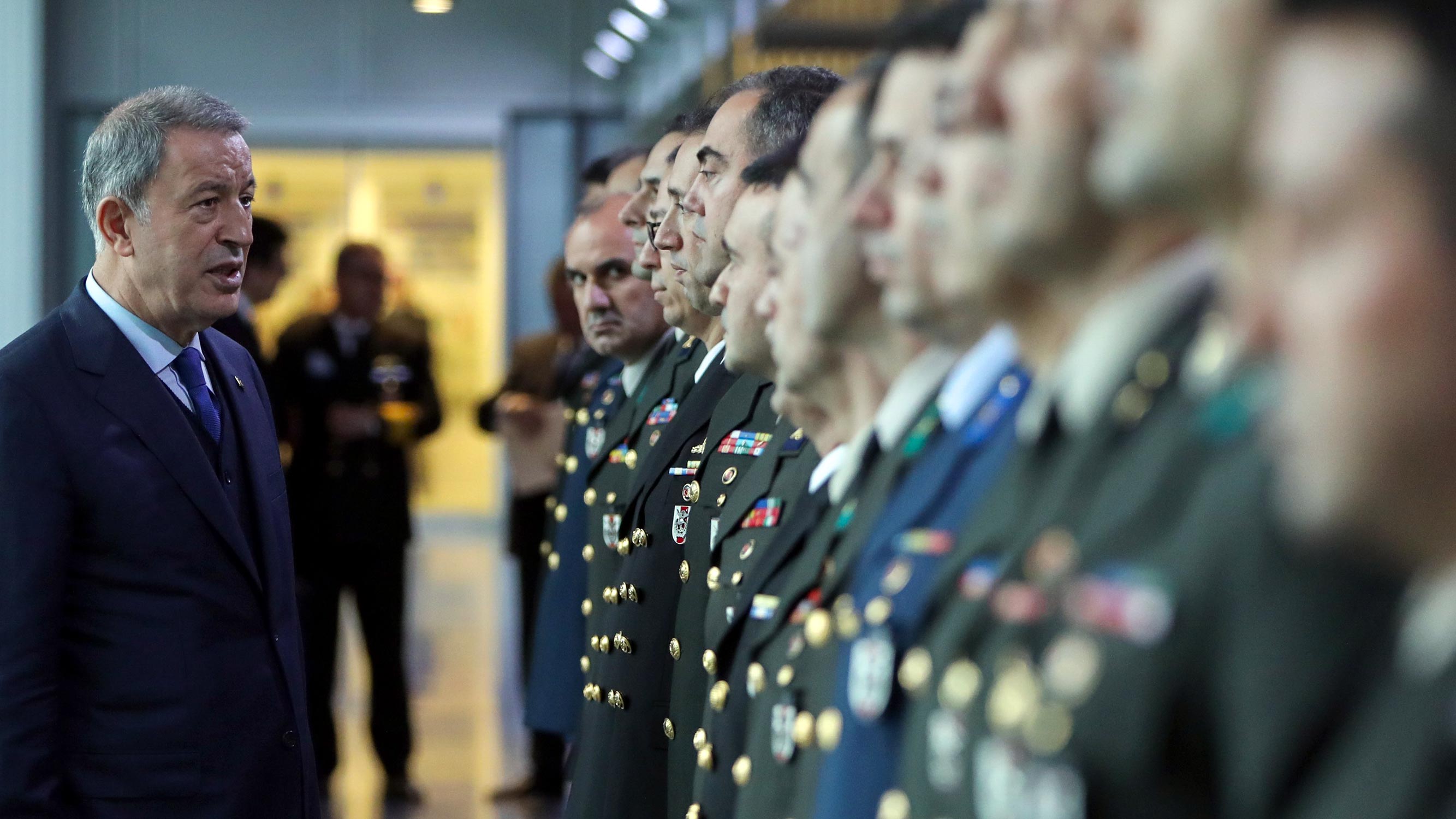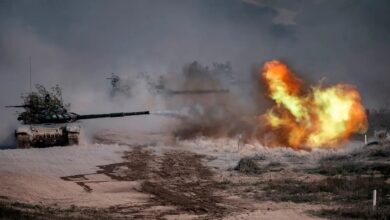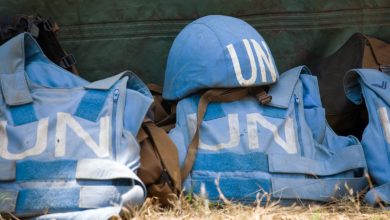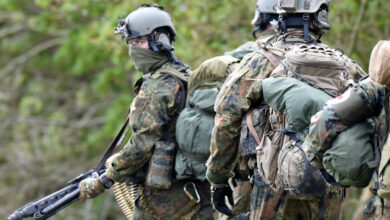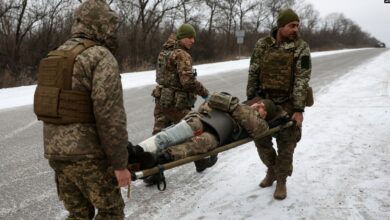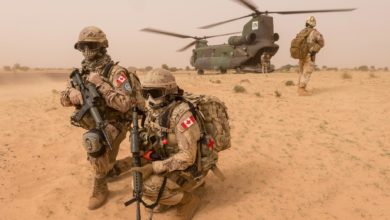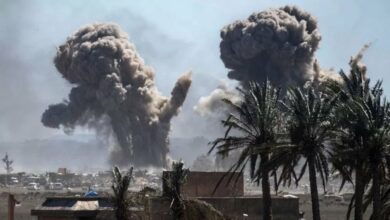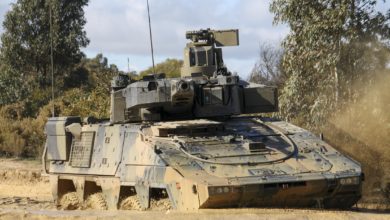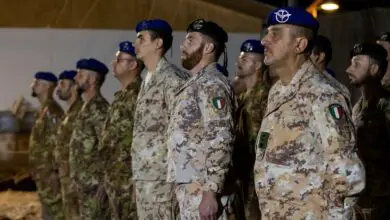NATO defense ministers criticize Turkey’s northern Syria incursion
NATO defense ministers on Thursday, October 24 criticized Turkey for its military operation in Syria, which is being coordinated with Russia, but recognized there was little they could do to sanction their strategically important ally.
The first day of a two-day meeting in Brussels was dominated by the issue, with Turkey isolated among the 29 NATO member states because of its Operation Peace Spring incursion against Kurdish-led fighters it considers “terrorists” but who are key in the ground fight against Islamic State in Syria.
Turkey and affiliated Syrian rebel groups fighting under the banner of the Syrian National Army launched Operation Peace Spring on October 9 with the goal of driving the Syrian Democratic Forces and its component People’s Protection Units (YPG) out of the area along the Syria-Turkey border.
NATO Secretary General Jens Stoltenberg described discussions as “frank and open,” euphemizing the sharp discord – and noted “we have seen disagreements before” but the transatlantic alliance has endured.
He stressed that the ministers agreed on the need to “maintain our unity in the fight against ISIS,” referring to the group being fought in Syria, Iraq, Afghanistan and elsewhere by a broad international Coalition that includes many NATO members.
Germany presented an idea it floated this week of international troops being deployed to create a security zone in northeast Syria – a notion that has been met tepidly by allies because of the chaotic situation on the ground and the need for a United Nations mandate.
The commander-in-chief of the U.S.-led Coalition-backed Syrian Democratic Forces General Mazlum Abdi welcomed the proposal, telling journalists in northern Syria that “we demand and agree to this.”
Ankara considers the predominantly Kurdish YPG, the backbone of the SDF alliance, to be inextricably linked to the Kurdistan Workers’ Party that has waged a decades-long insurgency in Turkey, and often conflates the groups.
Turkish-Russian agreement ‘does not provide basis for a political solution’
But the NATO ministers did not directly embrace the German plan. Stoltenberg said they instead stressed their “broad support … for ways to engage the international community to find a political situation” in northern Syria.
Before the meeting, German Defense Minister Annegret Kramp-Karrenbauer said she and her French and British counterparts believed a Turkish-Russian agreement to jointly patrol inside northern Syria “does not provide a permanent basis for a political solution.”
Belgium’s defense minister, Didier Reynders, said of Germany’s idea: “In principle we are in favor of such an agreement to work together – but then again, the situation is totally different now” following the Turkey-Russia agreement.
On October 22, Turkey’s President Recep Tayyip Erdogan and Russia’s President Vladimir Putin announced a agreement for the area that includes an SDF pullback. That followed an October 17 U.S.-Turkey agreement that gave Ankara and its Syrian rebel proxies control over a 120-km (75-mile) stretch of territory between Ras al-Ayn and Tel Abyad, after the SDF agreed to withdraw from the area.
The scale of the “Operation Peace Spring area” is unclear, but the Memorandum of Understanding between Turkey and Russia insists YPG fighters must leave a 30-km area along the entire length of the Syria-Turkey border within days. The SDF has said it will only pull back from the area between Ras al-Ayn and Tel Abyad.
U.S. Defense Secretary Mark Esper, speaking at a think tank conference in Brussels before the NATO meeting, was blunt about Turkey, saying it was “heading in the wrong direction.”
“Turkey put us all in a very terrible situation and I think the incursion’s unwarranted,” Esper said.
He defended the withdrawal of “less than 50” U.S. troops from northern Syria that cleared a path for the Turkish operation, arguing it was the only way to preserve the soldiers’ lives, and that in any case he was not “about to start a fight with a NATO ally.”
Trump eyes Syria’s ‘Oil Region!’
U.S. President Donald Trump on Wednesday summed up American strategy in Syria by saying: “Let someone else fight over this long blood-stained sand.”
However on Thursday, he tweeted: “I appreciate what the Kurds have done. Perhaps it is time for the Kurds to start heading to the Oil Region!”
That apparently referred to an Arab-majority, crude-rich desert zone under U.S. and SDF control in Syria’s east that Trump wants to prevent falling into the hands of the Syrian government or its Iranian or Russian allies.
Turkey’s incursion, its rapprochement to Russia and its threat to its European NATO allies to unleash a wave of Syrian war refugees if they dared criticize the operation have unnerved many in the transatlantic alliance.
“When we say we will open the gates, they are up in arms. Don’t be up in arms, the gates will be opened when the time comes,” Turkish President Recep Tayyip Erdogan said in a televised speech in Ankara.

